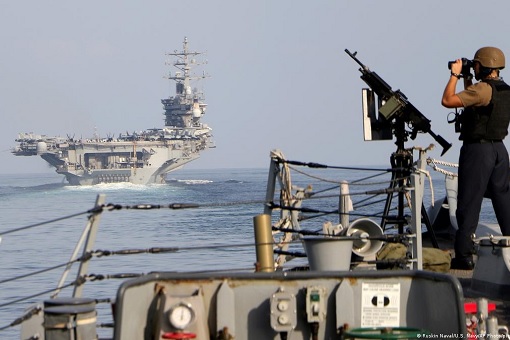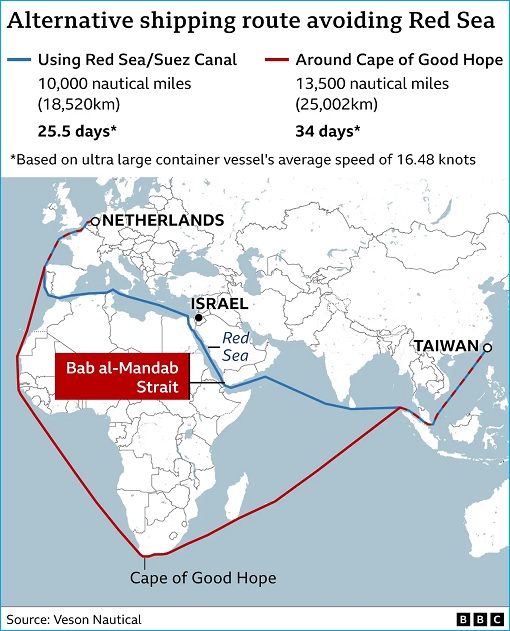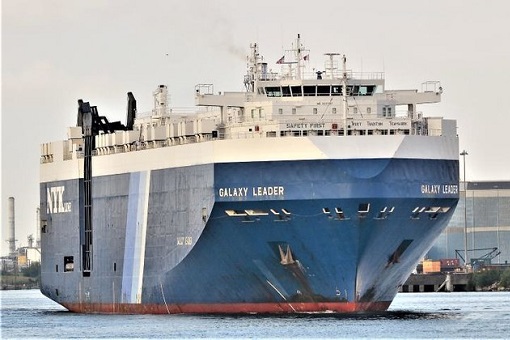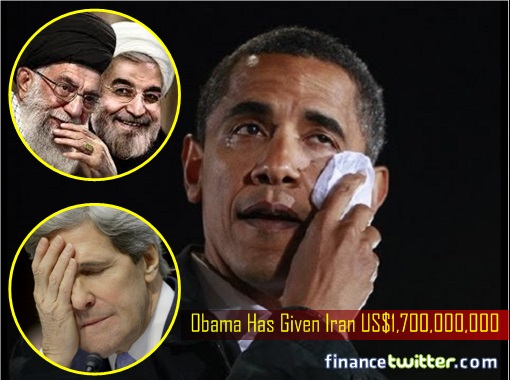The Red Sea, also known as the Erythraean Sea, is the northernmost tropical sea in the world. Believed to be formed 30 million years ago, during which Africa separated from Asia, the Red Sea is an astonishing 2,200 km long. However, it’s only 330 km at its widest point. Reaching a maximum depth of 2,200 metres, it hosts about 1,200 marine species and 200 different species of corals.
With calm waters and warm temperature between 22-28°C, the Red Sea is one of the most famous scuba diving destinations in the world. Offering not only sharks, dolphins, turtles and thousands of colourful fish, the Red Sea is also the final resting place for several incredible wrecks. It contains some of the world’s hottest and saltiest seawater, making it an exclusive tourism destination.
But the Red Sea is also home to between 10-12% of global trades which pass through it every year. At any given time, about 400 commercial vessels are transiting the southern Red Sea because of a short cut – the Suez Canal – which is the quickest sea route between Asia and Europe. About nine million barrels of oil per day were shipped through the Suez Canal in the first half of 2023 alone.

Nearly 15% of goods imported into Europe, the Middle East and North Africa were shipped from Asia and the Gulf by sea, including 21.5% of refined oil and 13% of crude oil. But it is not just about oil. Container ships transport all sorts of consumer goods such as TVs, clothes, trainers and sports equipment. In fact, the value of goods travelling through the Red Sea was worth about US$1 trillion annually.
Without the Red Sea-Suez Canal shipping route, which attracts 17,000 ships annually, it will cost shipping companies an extra 10 days and millions of dollars more to take a much longer alternative route around Africa’s Cape of Good Hope. In recent weeks, the Israel-Hamas War has spilled to the Red Sea when Yemen’s Houthis started attacking commercial vessels there.
As a result, shipping rates have risen 4% due to the extra 3,500 nautical miles that container ships have to travel as vessels are being diverted away from the Red Sea, affecting supply chains of consumer goods. There are also fears the disruption could push up oil prices. Like the Ukraine War, a rise in oil prices would lead to higher prices at the pumps and also drive higher inflation.

On Monday (Dec 18), oil giant BP became the latest company to announce it would be suspending its shipments through the Red Sea, joining several shipping companies like MSC, Maersk, Euronav and Evergreen Group. On the same day, U.S. Defense Secretary Lloyd Austin launched “Operation Prosperity Guardian” as he travels to Israel and other nations in the region.
The operation will leverage on the power of the Combined Maritime Forces (CMF), a 39-member international coalition. The CMF operates under the U.S. Navy Fifth Fleet in Bahrain to protect maritime access and stability. On Tuesday, Austin held a virtual meeting with ministers from 43 countries – activating Task Force 153, formed in 2022 to ensure maritime security in the Red Sea and Gulf of Aden.
The U.S.-led coalition will include the United Kingdom, Bahrain, Canada, France, Italy, Netherlands, Norway, Seychelles and Spain. Since Oct 19, when Iranian-sponsored Houthis launched cruise missiles aimed at Israel, which were shot down by the USS Carney, the militants have hijacked a commercial vessel – the Galaxy Leader – and took dozens crew members hostage.

The Yemen’s Houthi rebel group has also launched ballistic missiles and drone attacks against tankers, cargo ships and other vessels in the Red Sea, including MSC Clara and Norwegian-owned Swan Atlantic. On Saturday (Dec 16), American destroyer USS Carney shot down a staggering 14 drones in the Red Sea launched from rebel-controlled areas of Yemen.
The Pentagon said Dec 19 that the Houthis have conducted over 100 drone and ballistic missile attacks, targeting 10 merchant vessels involving more than 35 different nations. The U.S. Navy has at least three destroyers in the vicinity of the Bab el Mandeb strait between the Red Sea and the Gulf of Aden – USS Carney (DDG-64), USS Mason (DDG-87) and USS Thomas Hudner (DDG-116).
The British Royal Navy guided-missile destroyer HMS Diamond (D34) and the French Navy guided-missile frigate FS Languedoc (653) are operating in the Red Sea as well. Over the weekend, the U.S. moved aircraft carrier USS Dwight D. Eisenhower (CVN-69) and its escorts to the Gulf of Aden – between Somalia and Yemen – suggesting that the conflict could see more escalation.

The Houthis have previously warned that any ship linked to Israel is a “legitimate target” until the war in Gaza ends. However, many ships not connected to Israel were indiscriminately targeted. Interestingly, the U.S. appeared to be sending a weak message when Austin condemned the recent escalation as “reckless” Houthi attacks, which could embolden the terrorists to launch more attacks.
But how long can the gullible Democrats (Obama and Biden governments), well known for friendly policies with Iran, continue to defend the Iranian? Under President Barack Obama, Washington secretly arranged a plane delivery of US$400 million in cash on the same day Iran released four American prisoners and formally implemented the nuclear deal.
The cash, flown secretly into Iran on wooden pallets stacked with Swiss francs, euros and other currencies as the first installment of US$1.7 billion settlement, amounted to a ransom payment that violates the U.S. practice not to pay for hostages. When Donald Trump was elected, he scrapped the Iran nuclear deal, only to see Joe Biden said he would negotiate with Iran to rejoin the nuclear deal.

The U.S. cannot merely focus on intercepting new Houthi attacks. Sooner rather than later, the Houthi rebels’ aggressive campaigns will force Washington to retaliate with offensive measures. Not only the Iranian-backed militants said they will “not stop” attacking ships in the Red Sea to disrupt the shipping activities, but have also warned to turn the Red Sea into American graveyard.
By allowing Houthi “blockade” to continue, the costs to consumers and the economic impact on the world will be unacceptable. The Houthis will not stop unless Israel stop bombarding Gaza, but the Israelis cannot stop till Hamas terrorists are terminated. Like it or not, the U.S.-led multinational coalition will be forced to strike either the Houthis in Yemen or Iran directly – triggering a new war in the Red Sea.
Worse, if the Red Sea is “closed long-term”, Europe and nations in the Mediterranean will bear the brunt of the damage. The biggest loser to a closed Red Sea is Egypt, which depends on transit fees through the Suez Canal for as much as one-fourth of its currency earnings. A complete halt to oil shipments through the Suez Canal would be a disaster – boosting crude oil prices in 2024.

Going into the 2024 presidential election, Biden cannot be seen as weak. Doing nothing to stop the Houthi will clearly show the president’s incompetence. But everyone in the Middle East knows the rebels aren’t the root of the problems. As Saudi Arabia once said – Iran is the “head of the snake” which needed to be cut. The burning question is whether Biden has the balls to do what the Commander-in-Chief should do.
Other Articles That May Interest You …
- Hamas Is Game Over – How The Terror Group Miscalculated, Betrayed, Abandoned And Made More Mistakes
- Talk, Talk & More Talk – Toothless Arab-OIC Slams Israel, But Saudi Led 9 Allies Against Economic Retaliations
- Human Shields – How Hamas Cleverly Wins Propaganda War, But Was Stunned By “Fire Power” Unleashed By Israel
- Told You So!! – Congrats To Anwar For Radicalizing School Kids As Potential Hamas Terrorists Playing With Guns
- An Eye For An Eye!!! – No One Can Stop Israel From Reducing Gaza To Rubble And Erase Hamas Terrorists
- Israel At War – How Biden Funded Terrorist Hamas With $6 Billion, And Why Hamas’ Invasion Was A Dumb Move
- Careful What You Wish For – Malaysia Could Face U.S. Economic Sanctions For Funding Taliban Terrorists
- Israel-UAE Full Diplomatic Deal – The First Step Towards Recognition Of Israel By More Gulf Arab States
- What The Arabs Don’t Want You To Know – How Israel Secretly Saved Egypt From ISIS
- The Lifestyle Of “Rich Kids Of Tehran” Fuels The Fire Of Protest In Iran (Photos)
- Malaysia Declares War On “Impenetrable” Israel … To Be Slaughtered Like A Pig?

|
|
December 20th, 2023 by financetwitter
|


|

|

|

|

|

|




























We should act in solidarity with our Yemeni bros, even send a few thousand of our braves to the waters around Yemen to wave keris over their tiny heads to scare any opposition and friends.
We are, or at least some of us are, descendants of pirates after all.
Ahoy!